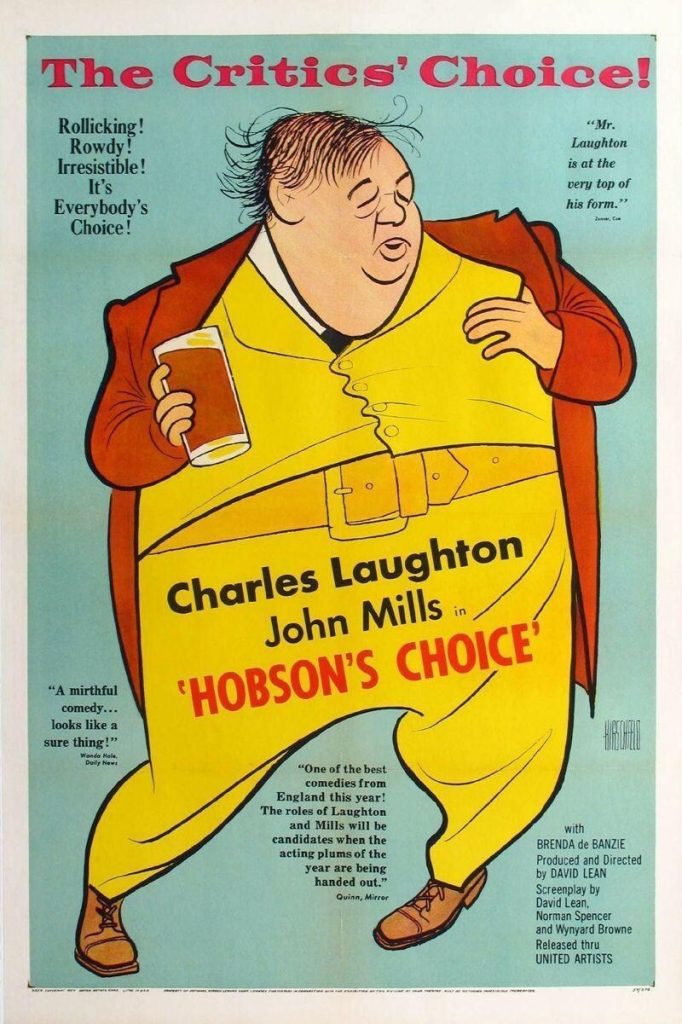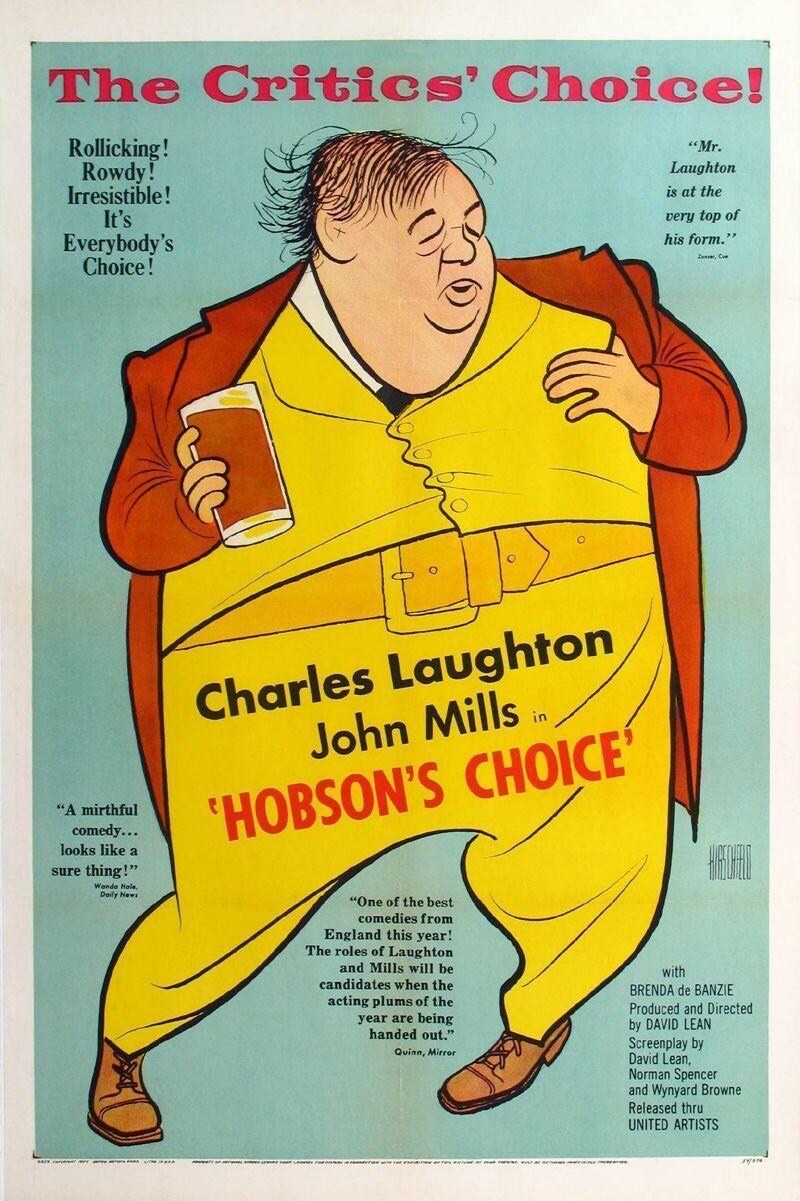

What a terrific film. They don’t make ‘em like this any more. And we’re all poorer for it.
We watched this again, just last Sunday. And thoroughly enjoyed it. Charles Laughton is superb as the bossy, drunken widower – the titular Henry Hobson – running a shoe shop, in which his three daughters (unpaid!) and troglodyte workers (paid a pittance) do all the work.
His attempts to rule the roost, in the style of a Victorian pater familias, evidently successful, to a point, up till now, are fraying at the seams. In Henry’s plans, his eldest daughter, Maggie (superbly played by Brenda de Banzie) – at 30 – an old maid, past any marital prospect. Destined to see out her life as his servant, effectively.
He desperately wants rid of his two younger daughters, via marriage, feeling hen-pecked, as the lone man in a household otherwise solely female.
The expression Hobson’s choice has a slightly slippery meaning. But it’s at the core to this story: things unfold not as Henry wishes, but as they will. His ‘choice’ is really no choice at all. Or if it is a choice, it’s choosing to submit to a kind of ineluctable fate.
Very luckily for Henry, Maggie turns his plans upside down, becoming the first of his daughters to marry. And, what’s more, marrying Will Mossop, his ‘boot boy’ (John Mills, in forelock tugging yokel mode!). They then set up as rivals of Henry, and pinch all his best business.
He, meanwhile, descends – literally – into alcoholic oblivion. This sounds like it could be the prelude to a very dark, dystopian turn of affairs. But this isn’t the post ‘60s 1970s come-down, when so much I name took such a bleak turn. It’s 1950s Britain. And an eccentric one, at that.
Maggie, who has been managing Henry’s shop so expertly, having pinched and married his star shoe and bookmaker, is like a fairy-godmother of the best kind. She contrives to reunite so many unravelling strands, all seemingly headed for disaster, into a happy knot.
Sure, this a bit dated in many ways; a bit corny, perhaps. Almost Dickensian in how it both celebrates and critiques a bygone era. But it’s also quite radical in several ways: a very strong woman, at its heart; social mobility/the changing of the guard, and other issues of class.
Filled with warmth, humanity, humour, and even a very unfashionable optimism, personally, I love this film. And absolutely recommend it.

